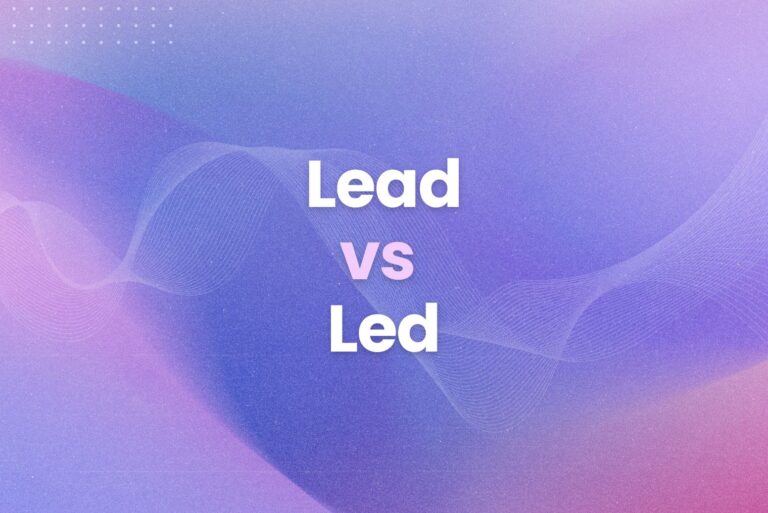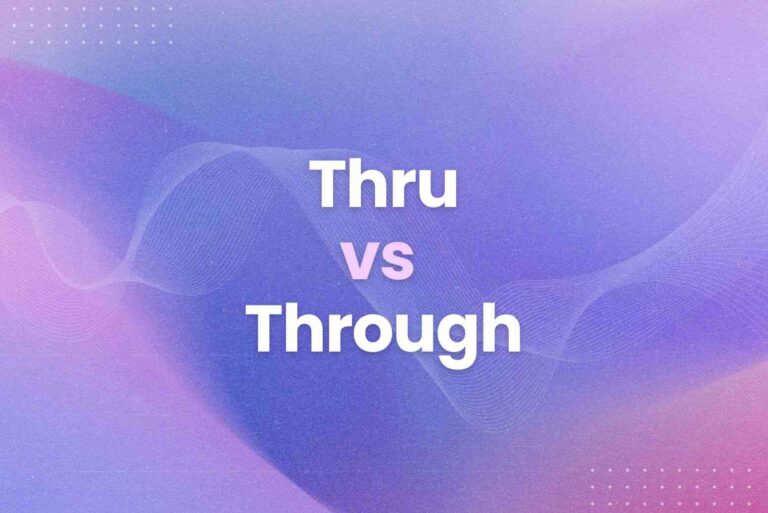Nonetheless vs Nevertheless: Are They Interchangeable?
Words matter. They shape our thoughts and how we connect with others. So, choosing the right word is crucial, even for seemingly small decisions like nonetheless vs. nevertheless. These two words often trip people up. Many writers use them interchangeably, but that can lead to miscommunication.
This guide will clarify the nuances between nonetheless vs nevertheless. Here’s what we’ll cover:
- The core meaning of nonetheless
- The core meaning of nevertheless
- When to use each word (with examples)
- Common mistakes to avoid
- Are they truly interchangeable?
The Core Meaning of Nonetheless
Let’s start with nonetheless. This word means “in spite of that” or “despite that.” It signals a contrast or concession. Essentially, it tells your reader that something happened or is true, even though there’s a reason it might not be. Think of it as a gentle nudge, acknowledging a potential objection before moving forward.
For instance, consider this sentence: “The movie was long; nonetheless, I enjoyed it.” Here, the length of the movie might usually be a reason not to enjoy it. Nonetheless, the speaker did enjoy it. It’s a subtle way of saying, “Yes, there was this thing, but it didn’t change the outcome.”
Moreover, nonetheless often adds a touch of formality to your writing. It’s a solid choice for professional documents or academic papers. So, if you want to convey a sense of measured consideration, nonetheless is a good bet.
The Core Meaning of Nevertheless
Now, let’s look at nevertheless. This word carries a similar meaning to nonetheless. It also translates to “in spite of that” or “despite that.” However, there’s a slight difference in tone. Nevertheless often feels a bit stronger, a bit more assertive. It’s like saying, “Despite this, the following is still true.”
For example, imagine this sentence: “The team lost the game; nevertheless, they played well.” Here, losing the game might seem like a reason to be discouraged. Nevertheless, the team’s good performance remains a fact. Nevertheless emphasizes the resilience or persistence of the second statement.
Furthermore, nevertheless can be used in a wider range of contexts than nonetheless. It works well in both formal and informal writing. So, if you want to project a sense of confidence or determination, nevertheless is a strong choice.
When to Use Each Word (Nonetheless vs Nevertheless)
While both words express contrast, the subtle differences in tone and formality can guide your choice. Think of nonetheless as the more polite, formal cousin. It acknowledges a potential counterpoint gently. Nevertheless, on the other hand, is more direct, more assertive. It acknowledges the counterpoint and then pushes past it.
Here are some examples to illustrate the nuances:
- Formal/Polite: “The research had some limitations; nonetheless, the findings are significant.” (Nonetheless softens the critique of the research.)
- Direct/Assertive: “The research had some limitations; nevertheless, the findings are significant.” (Nevertheless emphasizes the importance of the findings despite the limitations.)
- Formal/Polite: “She was tired; nonetheless, she went to the party.” (Nonetheless politely acknowledges her tiredness.)
- Direct/Assertive: “She was tired; nevertheless, she went to the party.” (Nevertheless emphasizes her determination to go to the party despite being tired.)
Consider your audience and the overall tone you want to convey. If you’re writing for an academic journal or a professional client, nonetheless might be preferable. If you’re writing for a broader audience or want to make a stronger statement, nevertheless could be a better fit.
Arvin, our AI writing assistant, can help you fine-tune these choices. For example, you could ask Arvin to analyze your sentence and suggest which word, nonetheless or nevertheless, is more appropriate for your intended tone. Arvin’s grammar function is powered by GPT-4 and can even suggest alternative phrasing.
Common Mistakes to Avoid
Using nonetheless and nevertheless correctly isn’t rocket science, but there are a few common traps to watch out for.
- First, don’t overuse them. Sprinkling them into every other sentence can make your writing sound repetitive and clunky. Instead, use them strategically to highlight key contrasts.
- Secondly, ensure the two parts of your sentence actually present a contrast. Otherwise, the word will feel out of place.
Here are some examples of incorrect usage:
- Incorrect: “The cat sat on the mat; nonetheless, it was fluffy.” (There’s no real contrast between the cat sitting and being fluffy. A simple conjunction like “and” would be better.)
- Incorrect: “The sun was shining; nevertheless, it was daytime.” (This doesn’t make logical sense. The sunshine supports the idea of daytime, not contrasts it.)
- Incorrect: “I like ice cream, nonetheless I like chocolate.” (These are two independent clauses. You need to make a contrast between them to use nonetheless correctly. For example: “I like ice cream; nonetheless, I prefer chocolate.”)
Finally, remember the subtle difference in tone. Using nevertheless in a situation that calls for nonetheless can make you sound unintentionally harsh. Similarly, using nonetheless when you want to be more assertive can weaken your message. With practice, you’ll develop a feel for which word works best in each situation.
Are They Truly Interchangeable? (Nonetheless vs Nevertheless)
So, the big question: are nonetheless and nevertheless truly interchangeable? The short answer is: almost, but not quite. While they share the core meaning of “in spite of that,” the subtle differences in tone and formality make them distinct. Think of them as siblings, similar but with their own personalities.
In many cases, you could swap one for the other without drastically changing the meaning. However, the best choice depends on the specific context and the nuance you want to convey. Nonetheless leans towards formality and politeness, while nevertheless is more direct and assertive. Therefore, consider your audience and the overall tone you want to establish.
Here’s a simple way to think about it:
- Formal situations, polite concessions: Nonetheless is your friend.
- General use, stronger emphasis: Nevertheless is the way to go.
Ultimately, the more you read and write, the better you’ll become at discerning the subtle differences between these two words.
Ready to Nail Your Word Choice with Arvin?
Nonetheless vs nevertheless might seem like twins, but they each have their own strengths. Understanding their subtle differences will make your writing more precise and impactful.
Here’s a quick recap on nonetheless vs nevertheless:
- Nonetheless is more formal and polite.
- Nevertheless is more direct and assertive.
- Consider your audience and tone when choosing.
- Don’t overuse either word.
Choosing the right word can be tricky, but it doesn’t have to be. Arvin, our AI-powered browser extension, can be a huge help. Arvin’s grammar function, powered by GPT-4, can analyze your writing and suggest the best word choice for any situation. So, next time you’re stuck between nonetheless and nevertheless, just ask Arvin. It’s like having a grammar expert at your fingertips, ready to help you polish your prose.
FAQs About Nonetheless vs Nevertheless
What is the difference between nonetheless and nevertheless?
While both words mean “in spite of that,” nonetheless is generally considered more formal and polite. Nevertheless, on the other hand, is more direct and assertive. Think of nonetheless as a gentle concession and nevertheless as a stronger statement.
What is nevertheless used for?
Nevertheless is used to introduce a statement that contrasts with something previously mentioned. It emphasizes that despite the preceding information, the following statement is still true. Furthermore, it can be used in a variety of contexts, both formal and informal.
What is the difference between nonetheless and however?
Nonetheless and however both express contrast, but there’s a subtle difference. Nonetheless emphasizes that something is true despite a potential obstacle. However, simply indicates a contrast or a shift in topic.
For example, “The food was cold; however, we ate it quickly” simply states a contrast. “The food was cold; nonetheless, we enjoyed it” suggests that the coldness didn’t prevent them from enjoying the food.
Is nevertheless positive or negative?
Nevertheless itself is neither positive nor negative. It’s simply a connector that shows contrast. The positivity or negativity depends on the content of the sentences it connects. For instance, “The team lost; nevertheless, they played well” connects a negative outcome with a positive assessment. Conversely, “The team won; nevertheless, they could have played better” connects a positive outcome with a slightly negative critique.





